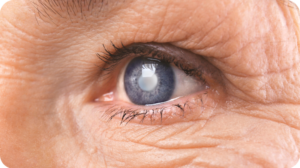Doctors are expected to be definitive. Patients want to know that any diagnosis or prescription is absolutely correct. Unfortunately, very little in medical practice is absolute. Medicine is a highly advanced but imperfect science. That’s why it’s often a wise strategy—if sometimes emotionally fraught—to seek a second opinion for any serious diagnosis.

A Mayo Clinic study found that less than 15 percent of diagnoses—and suggested courses of treatment—are confirmed by a second consultation. Although some of those cases involve different interpretations of a condition’s severity, and differing opinions about which treatment protocol may be best, many are just outright incorrect. A study published in BMJ Quality & Safety estimated that as many as 12 million Americans are misdiagnosed every year. A second opinion is your insurance against that happening.
Key Indicators to Seek a Second Opinion
If your doctor looks at an X-ray and tells you your arm is broken and needs a cast, the chances are extremely good that he or she is exactly right. If the doctor tells you that you have a common cold, there’s very little risk even if the doctor is wrong and it’s just allergies. However, in other situations, there’s a lot more at stake. The more serious or mysterious the symptoms, the great the chance of an initial misdiagnosis. Here are situations that should give you pause to consider a second opinion.
- Practitioner approach. Comfort, trust, and confidence in your caregiver is key to good health outcomes. If your doctor has delivered a potentially serious diagnosis without further explanation, has an abrasive or dismissive style, or just seems preoccupied and rushed, it would be wise to seek a second opinion. This will give you an opportunity to learn more about the diagnosis, including investigating if the treatment prescribed by your first doctor actually makes sense for your case.
- Serious diseases. If you’re battling cancer, MS, diabetes, or even Alzheimer’s, you are not without resources. Research developments are occurring in these and other major diseases on a regular basis. Although they may not be cures, those inroads can often slow disease progression or lessen the severity of the disease. You may also qualify for clinical trials. Unless the diagnosing doctor is an expert in the illness, he or she may not know the most recent treatment protocols or clinical research opportunities. That’s why it’s wise to seek a specialist who can further illuminate the specifics and prognosis of your case.
- High-risk, invasive, or traumatic treatment. Facing a recommendation for high-dose chemotherapy, powerful biologics, or serious, hours-long surgery can be frightening. However, there are often alternatives. For instance, some complementary alternative medical (CAM) practitioners recommend low-dose chemo with high-dose intravenous vitamin C for certain cases of cancer. If you’ll staring down the barrel of a life-disrupting treatment protocol, a second opinion can help you have faith in and commit to the treatment … or it may reveal another, less traumatic treatment option.
Seeking a second opinion can seem like a betrayal of trust, especially if you have a long relationship with your doctor. However, truly professional doctors do not take it personally when their patients seek a second opinion (if they’re confident in their abilities, they will assume the second opinion will confirm their diagnosis).
If your medical provider does seem upset or offended, he or she may not be the provider for you. Keep in mind, this is your health and well-being, and you are simply doing your due diligence to get the best care possible. It can never be said enough that patients are their own best advocates. You can seek a second opinion on the website MediFind.







